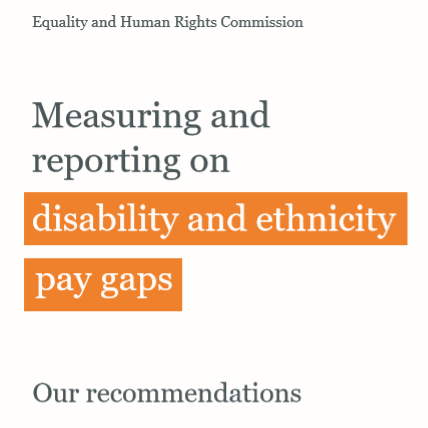Report: Measuring and reporting on disability and ethnicity pay gaps
Key findings
- Nearly 80 per cent of employers say that ensuring workforce diversity is a priority for their organisation. However, fewer than half record or collect data on whether employees are disabled and only 36 per cent record or collect data on employee ethnicity.
- Only 23 per cent of employers collect data on staff pay and progression that can be broken down by ethnicity and disabled and non-disabled staff
- Just three per cent of organisations actually analyse this data to explore differences in pay and progression between different ethnicities and disabled and non-disabled staff.
- Employers tend to use binary categories such as white/BAME and disabled/non-disabled when reporting, which disguises differences between pay gaps for different ethnic minority groups or for people with different impairments.
The report also calls on the government to require private, voluntary and listed public sector employers with 250 or more employees to monitor and report on ethnicity and disability in recruitment, retention and progression within the workplace by April 2020.







